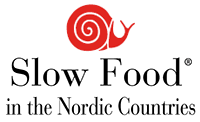
Slow Food has been working to seek to address the intersection between the food system and climate change and to describe possible pathways for tackling the climate crisis through the adoption of environmentally-friendly practices along all stages of the food supply chain, following a “seed to landfill” trajectory. (May 27, 2021)
Slow Food Climate Action Declaration
Be part of the solution
We acknowledge that we are in a Climate Emergency, and that reaching climate neutrality by 2050 at the latest is critical to preventing serious risks to food security and nutrition.
We recognize that the climate, biodiversity, health, and social crises our planet is facing today are deeply interlinked, and that sustainable food can bring benefits to all four.
We acknowledge that industrial agriculture and food production are significant drivers of climate change, and that food is responsible for about a quarter of all greenhouse gas emissions.
We therefore call on decision-makers to urgently act for a climate-neutral agriculture by 2050, by placing biodiversity at the centre of the fight against climate change. Soil quality must be secured and enhanced, agroecological and agrobiodiverse farming practises must be expanded, and farmers must be rewarded for their services to nature and the climate.
We demand a shift from a system based on climate-intensive global food trade to one promoting fair and short distribution networks and re-embedding food systems into local economies, thereby ensuring proximity and trust between producers and consumers.
We call for a dedicated action plan to significantly reduce and improve global production and consumption of meat, dairy, and eggs, and to meet the UN Sustainable Development Goal of halving food waste and food losses by 2050.
We call for the protection of waters and aquatic ecosystems which play a primary role in regulating the climate and managing carbon dioxide. Fishers who preserve the good health of the marine ecosystems that provide their livelihoods should be supported.
We demand that investments to fight climate change are made with a precaution-first approach to innovation that focuses on holistic solutions, such as agroecology, rather than on “techno-fixes” that ignore the systemic problems of our food system.
We call for public money for public goods: subsidies for monocultures must be removed and replaced with support to agroecological farming systems that contribute to the socio-cultural, economic and environmental sustainability of farms and regions. Support should be put in place to ensure a true transition towards sustainable food systems.
We recognise that climate change has been disproportionately caused by industrialised countries, yet its effects are disproportionately felt by the poorest nations, and that whether a country is rich or poor, it is the poorest citizens who are most vulnerable, and have the least means to mitigate the effects of climate change
.We ask governments to enforce policies that ensure equal access to carbon efficiency, mitigation and sequestration certifications so as to make sure that also the poorest and most in need can prove their contribution to net zero. We also reject the use of carbon capture, carbon trading, and carbon off-sets when these are used as tools which allow richer people to buy a greater share of resources at the expense of those who are in poor and/or in debt
.We recognise that the voices of indigenous and native peoples, youth and women need to be better heard in the discussions around food and climate, and call for every voice to become part of the solution.
We call for education and citizen participation to be central to the solution of climate change: food and environmental education in schools of every level, transparency, use of citizens assemblies, and sharing of knowledge will lead to equitable solutions.
We demand that every citizen has access to good, clean and fair food, and that no person go hungry or suffer from health problems linked to the quantity or quality of available food
We demand that our food and farming become part of the solution and not the cause of climate change.



